In friendships, we often envision shared laughter, spontaneous plans, or a coffee chat exchanging the latest buzz. For some, the mental picture might include frequent gatherings and lighthearted banter until late in the night. However, if your companion is an introverted individual, the rapport’s dynamics might just surprise you. It could be a quiet yet deeply meaningful conversation, a planned outing with cozy vibes, or a profound connection that goes far beyond gossips and surface-level chatter. And may be you’re not a person who enjoys something like that so you may wonder do introverts make good friends?
An introvert friend, with their thoughtful nature and profound reflections, might bring an entirely different experience to the friendship. You might find them shying away from crowds but comfortably engaging in one-on-one deep discussions. While understanding introverted friends’ needs and abilities can lead to enriching life experiences, it might also pose certain unique challenges, causing unexpected complications with your introverted companions. You’ll need to learn to accommodate a great deal of solitude-seeking, pre-planned social activities, and deep conversational preferences into your friendship dynamic.
And it’s equally essential to acknowledge that having any set expectations, introverted or otherwise, surrounding friendships might not be a healthy approach to begin with. No two individuals are the same, nor are their social preferences and comfort zones. So, let’s see when you might find it tricky to have friendship with an introverted individual and when it might be a great idea to have an introvert friend.
Key Takeaways
- Introverted individuals in friendships come with unique aspects that create a distinct dynamic.
- For those used to extroverted companions, the challenges of introvert friends might require adjusted expectations and understanding.
- Friendships with introverts often involve a lot of deep conversations, advanced planning for gatherings, and respect for space and solitude.
- While there could be complications with introverted companions, understanding and open communication can turn these into opportunities for a richer friendship experience.
- Rather than maintaining expectations, adapting to the unique traits, and inclinations of an introvert friend effectively can make the friendship experience much more fulfilling.
5 Reasons When Its Not a Good Idea to Have an Introvert Friend
1. You Enjoy Spontaneity in Friendships – An Aspect Introverts Might Struggle With
For those who thrive on spontaneity, the idea of impromptu outings or spur-of-the-moment plans with friends is a delight. The thrill of unplanned adventures or the unpredictability of a spontaneous social life can bring about a unique kind of excitement. However, it’s essential to acknowledge that introverts might approach such scenarios differently.
“Introverts typically prefer having a heads-up before diving into social activities. They need time to mentally prepare for social interaction, especially ones that are impromptu.”
This doesn’t mean that all introverts reject spontaneity, but it’s not unusual for them to feel more comfortable with some degree of planning ahead. Hence, if you enjoy a consistently spontaneous friend group, you might face recurring differences in expectations with introverted friends who value pre-planning.
This aspect of introvert-style socializing is linked with their tendency to internalize and process their experiences. Spontaneous plans might feel overwhelming due to the abrupt change in routine, and the lack of time to mentally prep might leave them feeling drained faster.
| Characteristic | Spontaneous extroverted response | Pre-planned introverted response |
|---|---|---|
| Social Plans | Thrives on short notice invitations and random plans | Prefers to know about plans well in advance |
| Response to Change | Excited by sudden change in plans or venues | May need time to adjust to new scenarios or unexpected changes |
| Social Energy Usage | Frequent social activities do not necessarily deplete energy | Tend to conserve energy for planned social gatherings |
- Spontaneity can bring excitement and a unique dynamic to friendships
- Introverts, while not inherently averse to spontaneity, may need some time to adjust
- Acknowledging and understanding this preference can enhance the flexibility with introverted friends
- Clear communication of plans and expectations can bridge the gap
Remember, every introvert is unique. Some may be more open to spontaneous plans than others. The key lies in understanding their comfort zone and finding a middle ground that respects both your spontaneity and their need for a heads-up. This balance will strengthen the bond and flexibility with introverted friends, making for a richer, more fulfilling relationship.
2. You get frustrated when conversations aren’t the center of attention
Your gatherings are a part of your lively lifestyle, full of vibrant banter and cheerful repartee. Yet, when engaging with introverts, you might sense a shift in the atmosphere. They tend to avoid small talk and often don’t seek constant chatter. To bridge this communication gap, it’s crucial to understand this inherent quality of introverts and how it shapes their interactions.
Introverts are known for their love for deep, meaningful conversations. These individuals are not much inclined towards lighter, frivolous discussions or surface-level banter. They seek, instead, deeper connections created through empathetic listening and thoughtful responses.
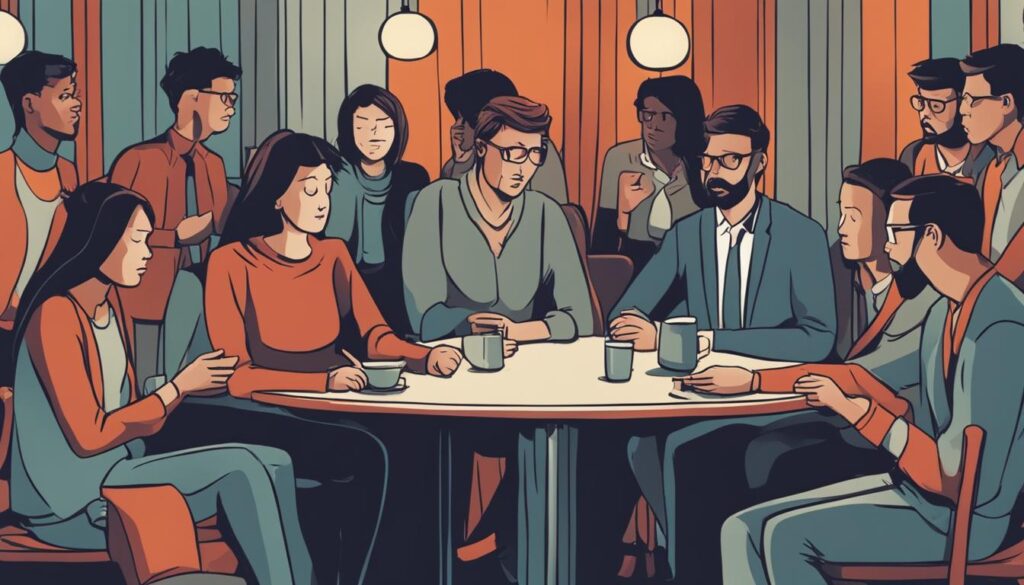
Thus, with introverts, the spotlight might not remain on the conversation but shift to meaningful silence. It reflects an introvert’s preference for quality interactions over quantity, which can lead to enriching experiences if embraced willingly.
Introverts often express a preference for one-on-one discussions, considering them more gratifying than group discourse.
Here are a few points that can shed light on what conversation-driven socializing implies in an introvert’s world:
- Introverts appreciate discussions that allow deeper exploration of an issue, thought, or emotion.
- Superficial or casual conversations may seem unfulfilling to them, hence their disdain for small talk.
- They would likely prefer to step back and listen, absorbing and contemplating the conversation’s essence.
These traits can greatly shift the dynamics of social situations, especially if small talk and constant dialogue are your preferred methods of bonding. However, once these differences in social interaction modes are acknowledged, it becomes easier to adapt and derive joy from these deeper discussions.
3. You find it hard to understand their need for alone time to recharge
Understanding the social energy dynamics of introverts can at times be challenging, especially if you’re the type to engage frequently in social activities. Introverts, unique in their desire for solitude, often savor alone time to recharge and rejuvenate. This need is a crucial part of their personality, influencing how they socialize, interact, and recover from draining activities.
What may appear as rejection or a plain desire to be uncooperative is many a time, just an introvert’s way of coping with energy depletion. The book “The Introvert Advantage” provides an insight into this need for downtime. But despite resources such as these, it still tends to confound many why introverts prefer their company, declining invites, and opting instead for time alone at home.
| Non-Introvert Perception | Introvert Reality |
|---|---|
| They are disinterested in spending time with others | They enjoy quality interaction but need alone time to recharge |
| They are indifferent or aloof | They value personal space and respect others’ |
| They avoid social activities because they don’t like them | They selectively engage in activities that won’t overly deplete their energy |
To truly resonate with an introvert, taking a step back to reflect and understand their solitude needs can bridge the understanding gap. Respecting their personal space, considering their energy limitations and accepting their way of recharging, can be the key to a balanced and supportive fellowship. It’s a language of understanding only spoken in the dialect of respect for individual differences.
- Respect their need for personal space: This respect translates to appreciating their time alone and not taking it personally when they need it.
- Do not take their decline personally: Introverts sometimes pass up on social invitations not because they do not want to participate but to preserve their energy. It is not a personal slight.
- Encourage their way of recharging: Let your introvert friends know that there’s absolutely nothing wrong with their preferred way of recharging. It doesn’t make them less of a friend.
In this social dance of ours, introverts might choose to sway to a different rhythm. Understanding this and adjusting our steps accordingly allows for a harmonious dance, a unique bond, and a friendship that truly respects and appreciates the essence of being an introvert.
4. You put pressure on them to be more extroverted
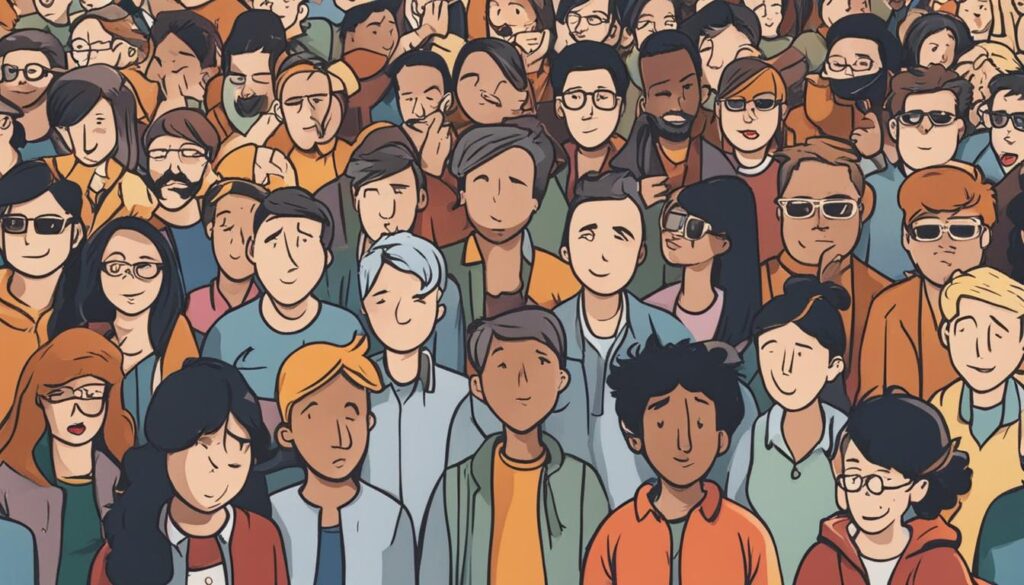
Introverts crave time to recharge and thrive in their own unique pace. Yet, societal pressure on social behaviors can adversely impact their sense of self and security. When introverts face continuous encouragement to morph into a more extroverted persona, it can lead to tension and discomfort in friendships.
“The Power of Introverts in a World That Can’t Stop Talking” validates the introverted experience and emphasizes constructing rapport on the basis of understanding and acceptance rather than coercion into preferred social norms.
Understanding the nuances of introversion vs. extroversion fundamentally matters in harmonious friendships.
- Introverts prefer meaningful conversations over small talk.
- They appreciate pre-planning over spontaneous social encounters.
- Solitude for an introvert is not isolation but a means to recharge.
This crucial acceptance of these traits amplifies the quality of friendships with introverts.
| Introverts | Extroverts |
|---|---|
| Value solitude as recharge time | Recharge in social situations |
| Averse to spontaneous plans | Thrive on spontaneity |
| Prefer deep, meaningful conversations | Enjoy small talk and variety in discussions |
It’s essential to understand that introverts do not need to be ‘fixed’ or encouraged to become more extroverted. An extroverted attitude is not better or worse than an introverted one, just different. Respecting these differences is the cornerstone of a sustaining friendship with an introvert.
5. You take offense when social plans don’t fully align
In the realm of friendship compromises, navigating the landscape of social plans with introverted friends could often pose unique challenges. Introverts tend to be selective with social gatherings, and this might not align fluidly with the expectations of friends who enjoy a vibrant social life. The root cause isn’t personal, but understanding this aspect of introverts can be key to maintaining a harmonious friendship.
Witnessing an introverted friend pass on frequent get-togethers or avoid large crowds might lead some friends to feel slighted. It’s essential to remember that such choices might not reflect their feelings towards the friendship, but more towards their comfort with the social setting. What’s often at play is simply an introvert’s delicate balance of expending social energy – something that well-known author Susan Cain elaborates on in her book “Quiet: The Power of Introverts in a World That Can’t Stop Talking”. Understanding this can ease feelings of offense and foster misaligned social expectations.
| Scenario | Typical Introverted Reaction | Possible Friend’s Perception | Suggested Understanding |
|---|---|---|---|
| Unexpected Gathering Invite | Decline or Uncertainty | Introvert is uninvested in friendship | Introvert needs time to prepare for social settings |
| Weekend Full of Social Activities | Selective Participation | Introvert is selectively engaging | Introvert is conserving energy by choosing activities carefully |
| Large Birthday Party | Reluctance or Anxiety | Introvert disdains celebratory settings | Introvert feels overwhelmed in large social gatherings |
When social plans seem misaligned with the preferences of your introverted friends, seeking open conversations might be crucial. Discussing and navigating friendship expectations can lead to more comfortable social plans for both parties. And while friendship often involves compromise, it’s important to remember that respect for your introverted friend’s comfort with social gatherings can forge stronger bonds.
10 Reasons Introverts Can be AWESOME Friends
The essence of friendship lies in connection and understanding, which a lot of times, introverts are superb masters of. The standard misconceptions about introversion often overlook the abundant qualities they offer in a friendship. Here, you’ll uncover ten amazing reasons why introverts make awesome friends and why their qualities could prove invaluable in nourishing soulful relationships.
Respecting the introverted personalities brings a fresh perspective into play on the importance of having introverts as friends. Instead of misreading their reserved nature or quiet behavior, you advance toward embracing their thoughtful insights, the quality of conversation they bring, and their deep-rooted loyalty, among other attributes of introverted friends.
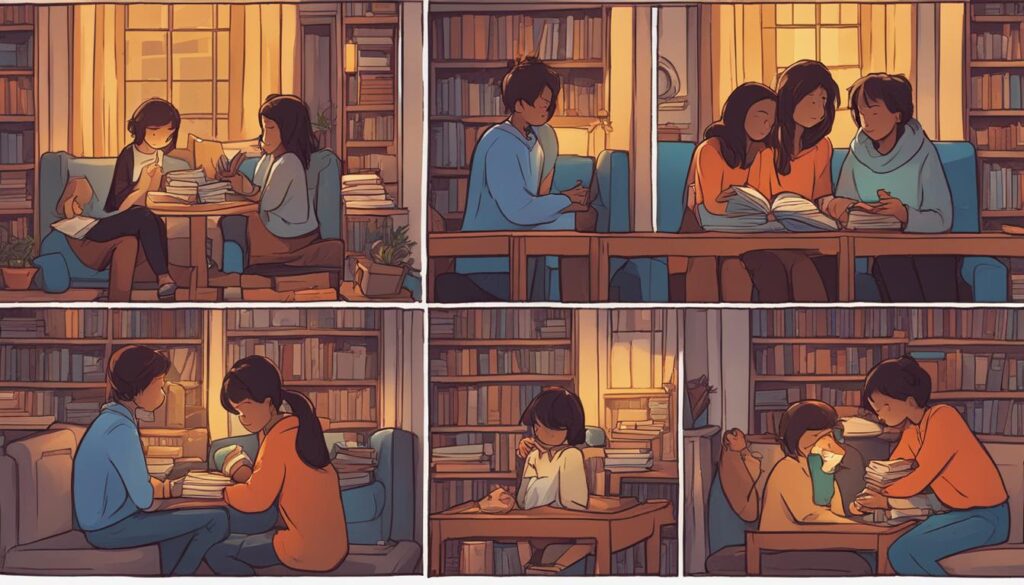
Key Takeaways
- Recognize and embrace the unique qualities of introverted friends.
- Introverted individuals can bring substantial depth to friendships.
- The benefits of having introverted friends lie in their loyalty, empathy, and considerate nature.
- Introverts’ preference for fewer but stronger bonds fosters authenticity in friendships.
- Understanding the essence of introversion and friendship can help you appreciate an introverted friend’s space as well as their need to recharge.
- Cherish the tranquility, creativity, and expanded knowledge base that comes with having an introverted friend.
1. Introverts Will Safeguard Your Secrets (Our Lips Are Already Shut)
Introverts have a penchant for discretion which makes them highly dependable friends when it comes to confidentiality in friendships. Their preference for solitary activities translates into a strong respect for privacy, making them effortlessly maintain trustworthiness. Known for their loyalty, introverts guard secrets shared with them as fiercely as their own. When it comes to keeping others’ secrets safe, introverts tend to stand out, holding your deepest confidences with unwavering commitment and care.
Delving into this quality further, numerous psychological studies attest to this aspect of their personality. These studies broadly conclude that introverts usually prefer few but deeply meaningful relationships, thus making them less prone to reveal any personal information shared with them in confidence.
Thus, if you’re looking for a friend who can be your safe haven for safekeeping secrets, an introvert friend can be your best bet.
| Introverted Personality Trait | Friendship Benefit |
|---|---|
| Discretion | Confidentiality in friendships |
| Preference for Solitude | Respect for personal space and privacy |
| Loyalty | Keeps secrets entrusted to them |
| Preference for Close Relationships | Trustworthiness and dependability |
In a nutshell, introverted friends not only keep your secrets locked away but also safeguard your trust with their sincere commitment to the bond of friendship.
- They prize the sanctity of personal space and respect the confidentiality of shared information.
- Their loyalty stems from their inherent trait of maintaining fewer but closer friendships.
- They are less likely to share personal information about friends with others due to their preference for privacy.
“Friendship with an introvert is a treasure trove of trustworthiness, confidentiality, and enduring loyalty.”
2. Introverts Have Higher Empathy
Introverts may appear to be more internalized — and indeed, they often are. However, this inward focus enables them to develop a nuanced understanding of human emotions and perspectives. As a result, they are typically more attuned to the feelings of others. This introverted empathy, as proven by research, sets a groundwork that fosters deep connections in friendships, paving the way for trust and mutual respect.
Unlike more surface-level social interactions, introverts often provide a safe space for their friends to express different viewpoints without fear of rejection or confusion. Their inherent respect for diverse perspectives can be especially supportive when their friends are exploring their personal experiences or navigating emotional challenges.
| Quality | Explanation |
|---|---|
| Empathy | Introverts tend to understand and relate to the feelings of others. They can be a source of comfort when someone is going through a challenging time. |
| Respect for Diverse Perspectives | Well-attuned to varying opinions, introverts respect their friends’ perspectives and allow room for open, non-judgmental discussions. |
| Deep Connections | Introverts favor a few close, intimate friendships over numerous shallow ones. These deeper connections can lead to reliable and enduring relationships. |
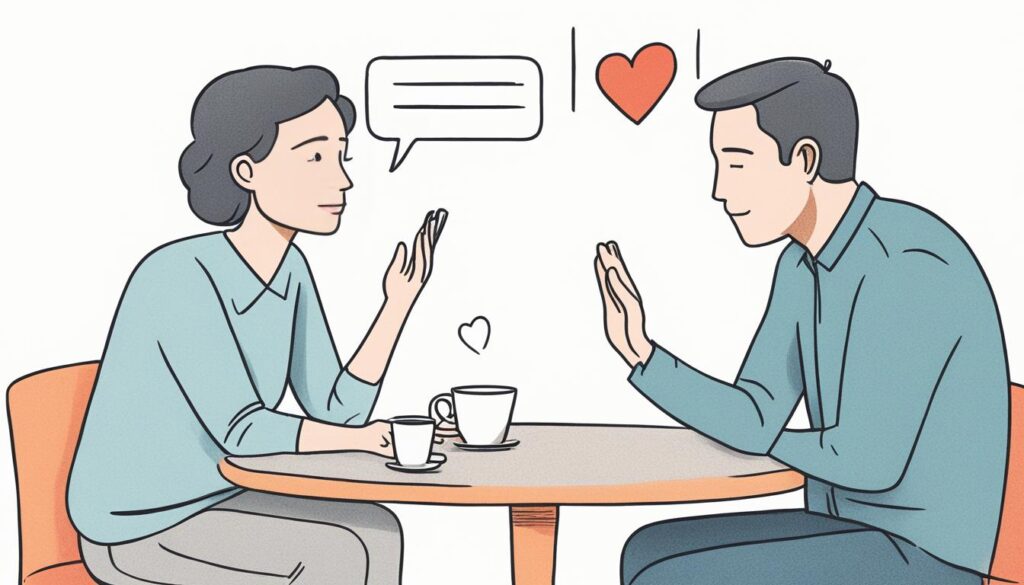
So, how can you notice this advantage in your friendship with an introvert? Here are some points that may resonate:
- If your introverted friend often lets you ‘vent it out’ without interrupting or trivializing your feelings.
- When faced with an ethical dilemma, you find it helpful to discuss it with them, as they bring forward nuanced and diverse points of view for consideration.
- Even when they might not agree with your viewpoint, they respect your right to hold that view and don’t impose their own opinions on you.
This attribute of empathy and respect for varying perspectives distinguishes introverts as loyal friends. Their thoughtful approach to relationships makes friendships with introverts truly rewarding. When you find such a loyal companion, it stands as a testament to the innate strength of introverted empathy and respect for diverse perspectives.
3. Introverts Are More Sensitive Creatures & Considerate
Sensitivity, a characteristic commonly found in introverted individuals, often makes them more discerning and considerate friends. Unlike their extroverted counterparts who might be more oblivious to subtle cues, introverts are often acutely aware of your feelings and needs, offering help or simply providing space as required. This ability to notice the nuances in others’ emotional states leads to a more careful and attentive friendship dynamic that’s appreciated by those who value mindfulness and emotional support in their relationships.
This ability to be aware and considerate, however, is not synonymous with fragility. The delicate nature of their sensitivity allows introverts to be more in tune with their surroundings and the people around them, making them thoughtful companions who ensure the wellbeing and comfort of their friends.
| Characteristics of Introverts | Benefits in Friendships |
|---|---|
| Sensitivity | Awareness of friend’s needs and feelings |
| Consideration | Ensure friend’s comfort and wellbeing |
| Gentleness | Calm and soothing presence |
This gentle nature of introverts combined with their ability to empathize with those around them makes them compassionate companions. Always considerate, they seldom impose their decisions on their friends and are usually up for listening to you and offering sound advice, giving friends the comfort and reassurance they occasionally need.
“Introverts seem to be good at self-calming the mind and body, which is a great attribute in a friend. You want your friend to be able to listen without judgment and give you advice when needed.” – Susan Cain, Author of ‘Quiet: The Power of Introverts in a World That Can’t Stop Talking’
- Sensitive Nature: Introverts are typically sensitive individuals who are acutely aware of the feelings and emotions of those around them.
- Considerate Attitude: They are more likely to be considerate friends, placing great value on your feelings and needs.
- Gentle Personality: Their gentle disposition makes them soft-spoken and patient friends, great for those seeking calm and balance in their relationships.
4. Introverts Can Be Super Loyal Friends
Introverted individuals are renowned for their loyal friendships. Their quiet nature and desire for fewer but deeper connections allow them to breed a profound sense of loyalty towards their friends. A commitment that is often staunch, allowing for steadfast introvert connections to thrive for a lifetime. 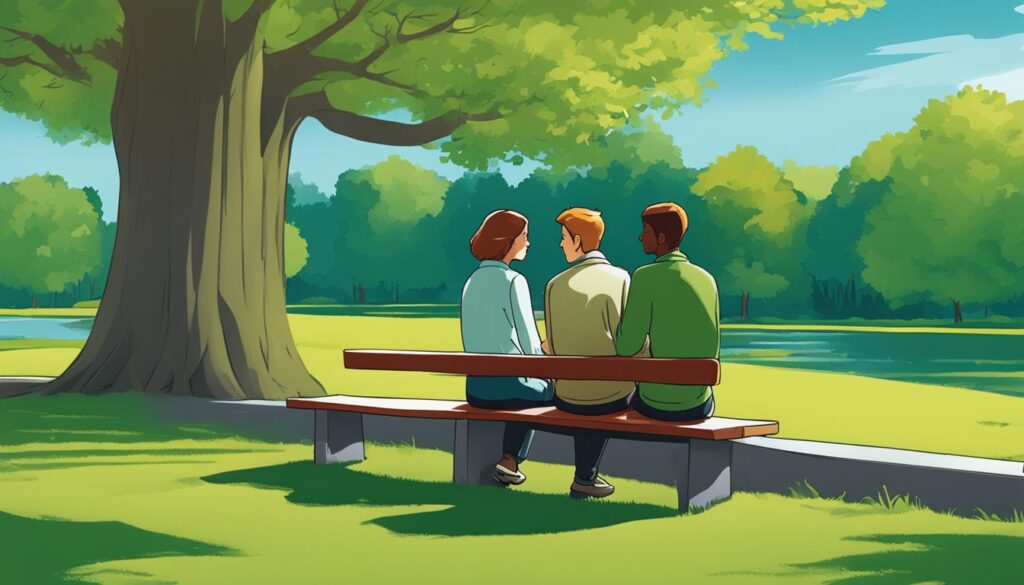
According to research on social relationships, introverts tend to have a strong sense of devoted companionship built on mutual respect and understanding, often leading towards lifelong bonds.
Let’s explore some interesting facts that support the concept of introverted loyalty in friendships:
| Fact | Explanation |
|---|---|
| Introverts form enduring friendships. | Introverts value depth over breadth. They prefer having a smaller circle, allowing them to devote more time and emotional energy to these cherished relationships. |
| Introverted friends are trustworthy. | With their preference for deep and meaningful conversations, introverts are less likely to engage in idle gossip, making them reliable custodians of secrets. |
| Introverts stand by their friends in challenging times. | Introverts are known to be steadfast in their bonds. They are the type of friends who will stand by your side during times of adversity. |
Everyone values loyal friends, but what marks these introverted friendships as unique is their commitment, even in the face of adversity. Introverts are inherently committed introverted friends, always there when you need a shoulder to lean on or an ear to listen.
Bear in mind, however, that every person and friendship is unique. What works well for one individual might not be the best fit for another. One has to respect and appreciate these differences to keep the flames of companionship burning brightly.
5. Introverts Are Relaxed (Come to Us When You Need to Just Chill!)
When it comes to unwinding, introverts are indisputable professionals. Their natural penchant for solitude and introspection lends itself to a profound sense of calm presence that often feels contagious to those around them. Seeking relaxation with introverted friends represents a unique experience, away from the chaos and noise of social demands.
Spending downtime with introverts is the perfect salve after a grueling day; their unassuming, chilled-out approach to life can almost instantaneously induce a sense of stress relief. Picture this: rather than being drowned out by loud music and inane chatter, you are cocooned in a tranquil sanctuary, sharing thoughtful conversations, enjoying a good movie, or just observing the world in contemplative silence.
As Susan Cain, author of the popular book “Quiet: The Power of Introverts in a World That Can’t Stop Talking”, affirms, “Solitude matters, and for some people, it is the air they breathe.”
In the quest for serenity, you’ll appreciate the seemingly effortless way introverts create a relaxed atmosphere. The advantage of unwinding with introverted friends is their inherent respect for personal space. They understand the value of silence and the comfort of being with someone without the compulsion to fill every moment with conversation. Here lies an opportunity for mutual rejuvenation. An evening spent in peaceful co-existence can prove to be surprisingly refreshing.
Let’s break down why introverts serve as perfect companions for those seeking respite from their hectic routines:
- Respect for personal space: Introverts inherently understand the need for “me time”, ensuring your downtime is respected.
- Comfortable in tranquillity: No pressure to make forced conversation or engage in high energy activities.
- Deep and thoughtful: A serene environment to ponder and discuss topics that enrich and uplift.
- Empathetic listeners: Introverts are keen listeners, providing a gentle, supportive presence if you need to offload.
| Activity | Why Introverts Excell |
|---|---|
| Reading | A cherished pastime for many introverts, perfect for a quiet afternoon. |
| Walks in Nature | A peaceful, non-taxing activity allowing for deep talks or comfortable silence. |
| Meditation or Yoga | Being introspective, introverts often appreciate these calming practices. |
| Artistic Pursuits | Many introverts are creative, enjoying slow-paced, enriching activities like drawing, writing, or playing an instrument. |
All in all, if you’re looking for authentic, peaceful, meaningful ways to relax and unwind, introverted friends can make for the ideal companions. Enjoying downtime with introverts can be a rewarding and rejuvenating experience for the soul, replete with empathetic exchanges, shared silences, and comforting companionship.
6. You’ll Get Full Attention — Introverts Actively Listen & Ask Genuine Questions
Introverts are often praised for their keen listening skills. They exhibit a unique quality of giving you their undivided attention, actively engaging in conversations while maintaining a comfortable silence that allows the other person to express freely. They are not merely waiting for their turn to speak, but genuinely paying attention to what you have to communicate.
Introverts are active listeners in friendships, demonstrating an innate ability to understand and empathize with your point of view. Their introspective dialogue encourages engaging conversations where you can feel heard, valued, and respected.
The introverts’ listening skills are further accentuated by their tendency to ask insightful questions that stem from a profound understanding of the subject matter. This not only ensures a balanced discussion but also adds depth making the conversation highly engaging and interesting.

This intrinsic trait of introverts is attributed to their thoughtful nature and preference for deep, meaningful connections over surface-level interactions.
| Aspect of Conversation | Introvert’s Approach |
|---|---|
| Active Listening | Introverts provide undivided attention, genuinely absorbing the information. |
| Engagement | They actively engage in the dialogue without dominating the conversation. |
| Empathy | They are more likely to empathize with your emotions. |
| Insightful Questions | Introverts ask thought-provoking questions ensuring a balanced and engaging conversation. |
In conclusion, when we consider these incredible attributes, it becomes clear why introverts form such profound and enduring friendships. Now, could you ask for a better friend than someone who always listens, never interrupts, and keeps you engaged with their insightful questions?
7. Introverts Remember & Keep Track of Important Things About You
Another remarkable trait of introverted friends is their incredible memory among friends that can be largely attributed to their personal attentiveness. In the hustle and bustle of daily life, it’s easy for things to fly under the radar, but with an introverted friend, you’ll find that details rarely slip away unnoticed.
From your big promotion at work to that small shop you said you liked, your introverted friend’s attention to detail ensures that nuances like these are remembered and heartily appreciated. This caring nature of introverts goes beyond simple acts of mindfulness in friendships; it effectively cements their place as reliable confidants who are genuinely invested in your life’s events.
“Introverts, with their attentive and thoughtful nature, never fail to remind us that in the grand scheme of life, it’s the small details that make the big picture.”
Moreover, their keen detail-oriented mindset often comes hand in hand with a high level of attentiveness. This, in turn, mirrors itself in a repeated pattern of remembering things about you that even you might have forgotten.
- That book you said you wanted to read,
- The song you said you loved,
- That funny inside joke from years back.
Unsurprisingly, these factors combined end up making these individuals, cherished friends, who are not just ‘there’ but are ‘there for you’, even in the most minor details of your life.
| Characteristics of introverts | Effects on friendship |
|---|---|
| Attentive to detail | Remembers important aspects of your life |
| Good memory | Recalls previous conversations and experiences |
| Personal attentiveness | Takes note of your likes, dislikes, and interests |
| Mindfulness | Values your words and actions, paying close attention to your feelings and emotions |
In conclusion, introverted nature embodies a profound understanding of the importance of small details that most might overlook. Their perceptive minds masterfully encapsulate the essence of attention-driven friendships that many crave. Isn’t that something profoundly special?
8. You Can Be Yourself When You’re With An Introvert; We Don’t Play Pretend.
Embarking on the path of an authentic friendship with introverts can be a soft window to genuine relationships. With an introvert, your unique rhythm, quirks and colors are not just accepted, they are sincerely embraced. There is a refreshing honesty that evolves – where pretense is deemed unnecessary, and true identity is liberally celebrated. Let’s delve into the beauty of this authenticity below:
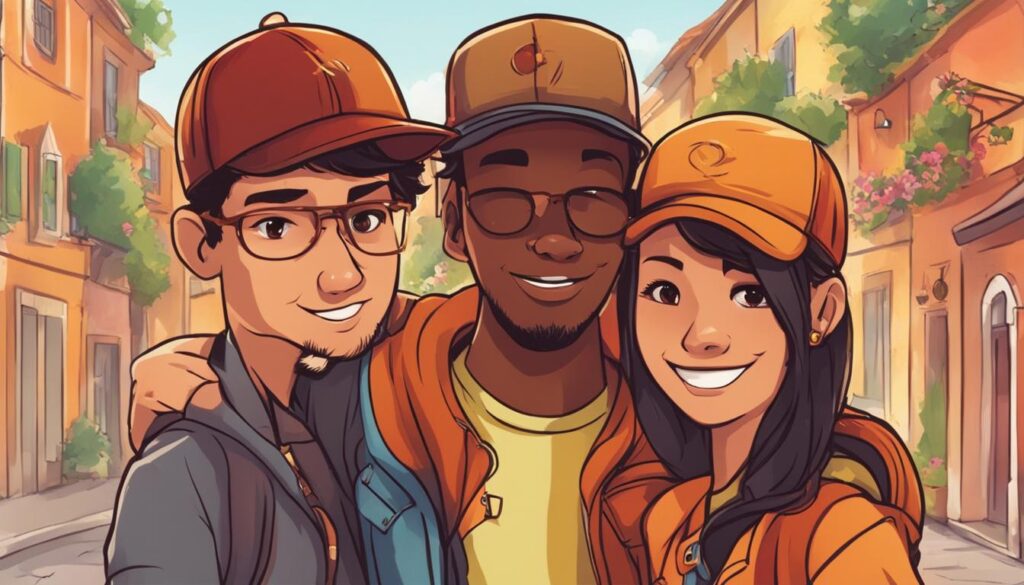
- Introverts encourage you to be your genuine self: They do not impose their expectations but rather cultivate an atmosphere where you can bloom organically.
- Societal norms and façades exist on the periphery: Being with an introvert creates a liberating bubble where social pressure does not dictate behavior or emotional expression.
- Conversations are more profound and real: Superficial chatter is replaced by meaningful interactions where thoughts and feelings are shared openly and without judgement.
| Authenticity Markers in Friendship | Role of the Introverted Friend |
|---|---|
| Sincerity | Nurtures a ‘no pretense required’ aura, embracing honest dialogue and interactions. |
| Comfort in Individuality | Introverts accepting true selves in others. They appreciate distinctiveness and do not demand conformity. |
| Empathy | Fosters an understanding bond leading to deeper connections rooted in mutual respect and recognition. |
Friendships with introverts lay down a sturdy foundation for personal growth and emotional ease. It’s an invitation to a world where you’re not just seen but also truly acknowledged for you are.
9. You’ll Get a Creative Friend:
Have you ever marveled at the way some people seem to have an innate knack for thinking outside the box? They can turn the mundane into the magical, and they are often introverts. There’s a prevailing interconnection between introverted creativity and innovative hobby partners, interwoven into the lifestyle of countless introverts. This proclivity towards innovation and artistry can take various forms, from painting, writing, coding, to even crafting DIY projects at home. The ideas that introverts bring to the table often surpass the commonplace, and having such a friend can open doors to a vast world of creativity and imagination for you.
A study published in the Journal of Personality and Social Psychology reveals how introverts’ reflective nature tends to nurture their artistic sides. This can add a whole new dimension to your friend circle, enhancing your mutual collaborative creativity and making things far from ordinary.
Here’s a glimpse into the world of creative hobbies where introverts excel:
| Hobby | How it showcases introverted creativity |
|---|---|
| Writing | With their introspective nature, introverts often excel at weaving intricate stories or expressing complex emotions via the written word. |
| Painting/Drawing | Introverts usually enjoy solitary activities. The solitude favored by painting or drawing can offer an ideal outlet for their imaginative insights. |
| Photography | The ability to perceive the world from unique perspectives and capture those moments creatively is often inherent to introverted individuals. |
| Crafting | Whether it’s knitting, pottery, or paper mache, crafting can provide a therapeutic and creative escape for introverts. |
| Gardening | The quiet patience required by gardening is often well-matched with introverted temperaments. It isn’t unusual to see an introvert innovatively transforming their home into a green oasis. |
So the next time you’re looking for someone to join you in exploring new ideas, consider your introverted friend. Their rich inner world of thoughts can offer unforeseen twists to your creative endeavors, making the experience both rewarding and stimulating.
10. Introverts Will Increase Your Knowledge & Understanding of Things
Introverts are known to enjoy their own company allowing them ample time to indulge in enriching pursuits and expanding their horizons. This investment often translates into educational friendships where the shared knowledge grows collectively. These friends don’t just bring fun and companionship into your life but a fair share of interesting insights too.
Here is an example of how learning with introverts could be a unique experience. Imagine a friend who takes delight in reading voraciously and encodes a vast sea of information. Now, wouldn’t that translate into captivating conversations, full of new things you might have never explored? This kind of interaction often leads to a massive knowledge expansion building a well-rounded personality over time.
Introverts are not just about their quiet corners but are also keen observers and avid learners. They have the patience to delve deep into topics, dissect every aspect, and build a comprehensive understanding. The result? Highly informative discussions that can stir your intellect and curiosity!
“In the end, we will conserve only what we love, we will love only what we understand, and we will understand only what we are taught.” – Baba Dioum
This quote aptly summarizes the profound impact of having introverts as information sharers in your life. They can make ordinary discussions fascinating with their well-articulated thoughts and extensive knowledge base. Introverts could have any area of interest ranging from art, science, literature to music and more. When they share such knowledge, it’s not just informative but quite often inspiring as well!
| Aspect of Friendship | With Introverts | Without Introverts |
|---|---|---|
| Conversation Depth | High | May vary |
| Learning Opportunities | Frequent | Less frequent |
| Knowledge Exchange | Substantial | Limited |
| Interests & Hobbies | Wide-ranging | May be constrained |
- Introverts spend considerable time learning and exploring new knowledge areas.
- Introverted friends often share their discoveries, leading to informative and enriching conversations.
- Engagements with introverts are not just about fun or pastime but often lead to new learning experiences.
Indeed, friendships with introverted individuals hold the potential to be educational journeys as well. You don’t only learn about new things; you also learn new perspectives. Don’t doubt your introverted friend’s quiet nature. You might be surprised by the depth they bring to your life!
7 Ways To Know If You’ll Click Well With An Introvert Friend
When it comes to forming bonds with introverts, it’s crucial to identify compatibility factors that ensure a natural and harmonious connection. One of the key aspects of compatibility with introverted friends lies in the mutual respect and understanding each person has for the other’s social preferences. Embracing these connection cues can steer your friendship towards a more rewarding path.
- You respect their need for alone time. Introverts need regular periods of solitude to recharge their social batteries. They may decline frequent invitations or want to end gatherings early. A considerate friend understands this is not personal, and doesn’t take offense when an introvert needs solitary downtime.
- You engage in stimulating one-on-one conversations. Introverts prefer quality over quantity when it comes to social interaction. One study found they experience greater pleasure centers activation from deep discussions compared to extroverts. A friend who enjoys intellectual debates, meaningful exchanges of ideas, and thoughtful conversations on varied topics will click well.
- You understand different communication preferences. Introverts tend to process information internally before articulating thoughts verbally. They may take longer to reply to messages. A patient friend understands this does not mean disinterest, but allows time and space for reflection. Introverts also prefer communicating via phone/text rather than busier social settings.
- Shared interests don’t require high stimulus or crowds. Because introverts can feel drained by noise, busy environments, and chaotic group activities, shared alone-time hobbies are ideal like reading, nature walks, artistic pursuits, board games. These allow deep engagement without overstimulation. Studies show introverts recharge during low-key solo activities.
- You respect their boundaries and don’t take reactions personally. Introverts often need time to mentally prepare for socializing. They may decline invitations or seem hesitant. Rather than taking this as rejection, patient friends understand introverts simply need alone time as “buffer zones” between outings. Friends who become hurt easily over rejection won’t click as introverts try to avoid over-extending themselves.
- Silences aren’t awkward and you’re a good listener. Introverts often observe more than they speak in groups. A compatible companion sees value in companionable silence rather than feeling social pressure to constantly talk. They allow space for introspection without judgment. Strong listening skills and curiosity about the inner lives of their friends also helps introverts feel understood.
- Loyalty and dependability are important to you both. Introverts tend to prefer just a small trusted circle rather than many surface relationships. They click best with friends who demonstrate reliability over time through consistency, trustworthiness, and unconditional acceptance of each other’s temperaments without seeking major changes. Maintaining strong bonds through quality time together aligns well between loyal introvert and extrovert friends.
Remember, it’s not just about getting along, but about forming a bond that adds value to both lives. If these factors resonate with you and your introverted friend, you’re well on your way to forging a beautiful and enduring friendship.
FAQ
Do introverts make good friends?
Definitely. Introverts can make fantastic friends. With their qualities like deep listening, empathy, and loyalty, introverts can form meaningful friendships. However, understanding their nature and respecting their need for alone time is crucial.
Can introverted and extroverted individuals be friends?
Absolutely. Despite their differing social needs, introverted and extroverted individuals can form strong relationships. These friendships often blossom from the balance brought about by their contrasting traits. Understanding, acceptance, and compromise are vital in such friendships.
How does an introvert friend generally respond to spontaneous plans?
While some introverts might be fine with spontaneous plans, many prefer having some heads-up before diving into activities. They value their time and may need to prepare mentally for social interactions. Hence, they appreciate the courtesy of an advance plan.
Will an introvert friend always spend time alone?
Not always, but introverts do cherish their alone time. It’s a way for them to recharge and process their experiences. It doesn’t mean they don’t value your companionship. Instead, understand that this solitude is essential for their mental health.
How can I form strong relationships with introverted individuals?
It requires understanding and respecting their introverted nature. Giving them space when needed, appreciating their preference for deep conversations over small talk, and allowing them to open up at their pace are key aspects. Accepting them as they are without trying to change them to be more extroverted also goes a long way.
How do I communicate effectively with my introverted friend?
Effective communication with an introverted friend involves direct and clear conversations. Introverts often appreciate authenticity, so expressing your feelings and thoughts genuinely helps. Understanding their preferences for meaningful dialogues over small talk is also beneficial.
Are introverted individuals comfortable in social gatherings?
It can vary among introverts. Some may feel drained in large crowds or frequent social gatherings, while others might navigate them more comfortably. However, introverted individuals generally prefer intimate settings and small group interactions.
Do introverts appreciate friendships as much as extroverts do?
Certainly. While they may approach friendships differently, introverts highly value their relationships. They prefer quality over quantity and are known to form deep, meaningful connections with their close friends.
Do introverts have hobbies and interests that they can share with friends?
Yes. Like anyone else, introverts have diverse hobbies and interests, which they will be happy to share with friends who show genuine interest. These can range from reading and gardening to more introspective and creative pursuits.
How can I support a friend who is an introvert?
A: Supporting your introverted friend involves understanding their need for personal space, respecting their low inclination towards small talk, and appreciating their unique interests. Being patient, accepting their way of socializing, and recognizing their value in your life can also help support your introverted friend.